September 18, 2023 •
Connecticut Special Session Will Consider State Supreme Court Nomination
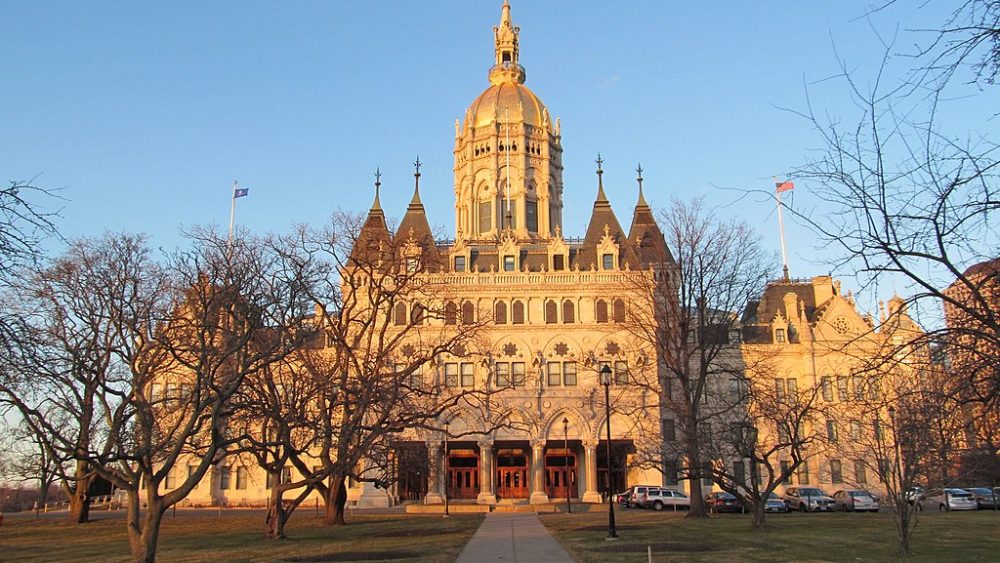
Connecticut State Capitol - John Phelan
Gov. Lamont called the Legislature into special session to consider the nomination of Nora Dannehy to the Supreme Court. The governor’s proclamation compels the special session to begin on September 19. A second special session proclamation by Lamont is anticipated […]
Gov. Lamont called the Legislature into special session to consider the nomination of Nora Dannehy to the Supreme Court.
The governor’s proclamation compels the special session to begin on September 19.
A second special session proclamation by Lamont is anticipated later this month to consider legislation changing the date for Connecticut’s presidential preference primary.
September 28, 2020 •
Connecticut Governor Announces Special Session
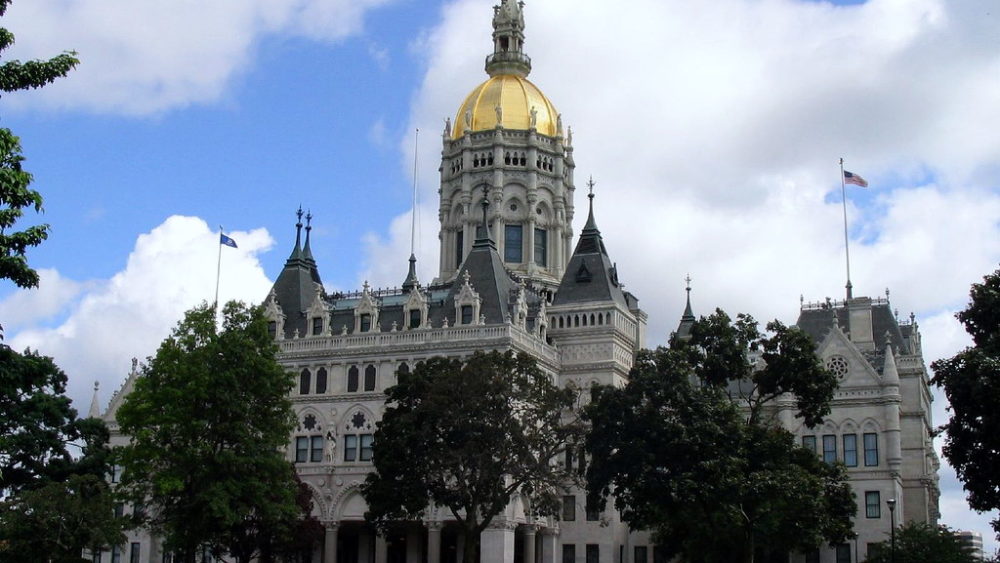
Connecticut State Capitol
Connecticut Governor Ned Lamont announced a special session to convene on Tuesday, September 29. The General Assembly will consider legislation for several policy issues including: performance-based regulation of the state’s electricity, gas, and water companies; securing absentee ballots for the […]
Connecticut Governor Ned Lamont announced a special session to convene on Tuesday, September 29.
The General Assembly will consider legislation for several policy issues including: performance-based regulation of the state’s electricity, gas, and water companies; securing absentee ballots for the general election; school construction projects; and opportunities for the state’s hemp program.
The Legislature will also consider four nominations announced by the governor in July to fill a vacancy in the state Supreme Court and three seats in the Appellate Court.
May 4, 2020 •
No Limits on Campaign Contributions in Oregon
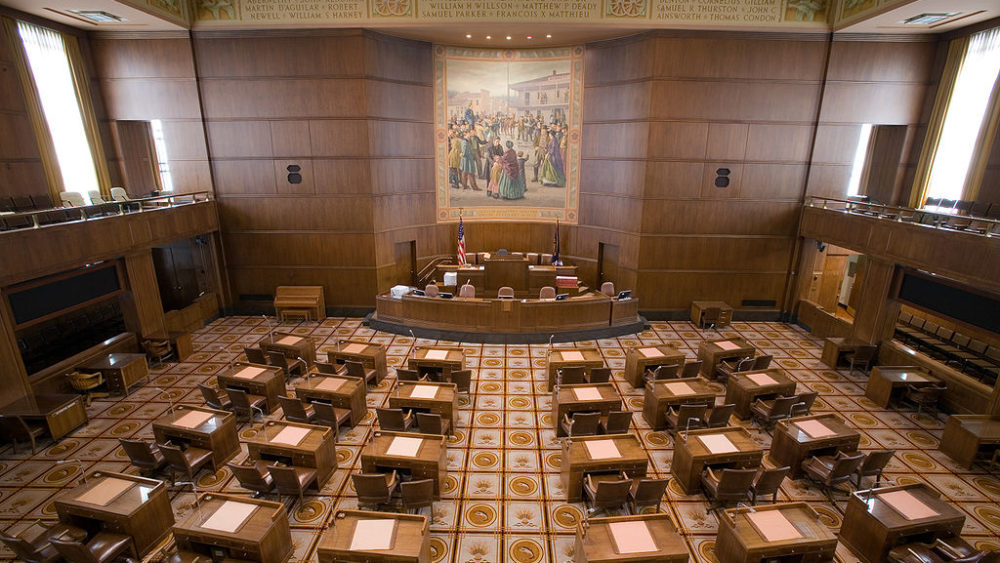
Oregon Senate Chamber - photo by Cacophony
Oregon political candidates in legislative and statewide races can continue to accept contributions vastly exceeding the caps voters approved in 2006. Secretary of State Bev Clarno announced on Friday she would not allow the 2006 voter approved initiative. The initiative […]
Oregon political candidates in legislative and statewide races can continue to accept contributions vastly exceeding the caps voters approved in 2006.
Secretary of State Bev Clarno announced on Friday she would not allow the 2006 voter approved initiative.
The initiative placed a $1,000 limit on donations to statewide candidates and a $100 limit on contributions to legislative candidates.
Clarno’s office released a statement communicating Measure 47 from 2006 was not made operative by the Oregon Supreme Court decision.
Therefore, there is no change in current state election laws.
Clarno’s decision was based off of a verbal opinion from the Department of Justice.
Also, Multnomah County Circuit Judge Thomas Ryan ruled Portland Mayor Ted Wheeler’s campaign did not need to limit spending.
The ruling came after a suit filed by Wheeler’s main opponent questioning his use of contributions.
Portland mayoral candidate Sarah Iannarone had joined several campaign finance activists in a lawsuit against Wheeler’s campaign.
The lawsuit contends the mayor must repay all the donations he’s received surpassing the $500 campaign finance limit approved by Portland voters in 2018 but never enforced due to legal challenges.
After last week’s Supreme Court ruling, the city auditor’s office will begin enforcing Portland’s campaign finance measure starting today.
However, candidates won’t be retroactively punished for taking large donations.
Portland Attorney Dan Meek said he would ask the state Supreme Court to reconsider its April decision to make it clear Measure 47 should go into effect immediately.
In November, voters will decide on a proposed state constitutional amendment making it clear the state could adopt any limits allowed under the U.S. Constitution.
November 26, 2019 •
Supreme Court Questions Alaska Contribution Limit
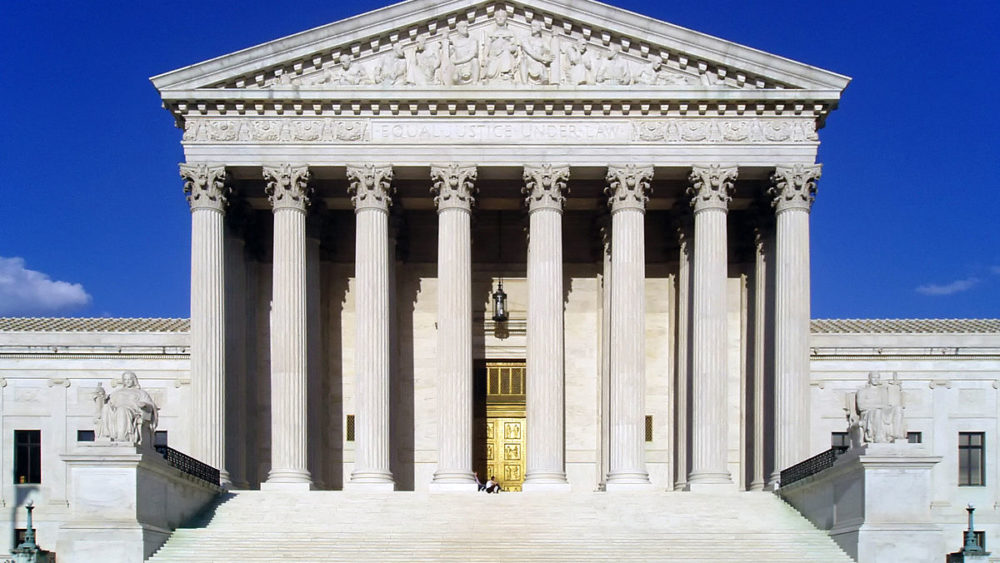
United States Supreme Court Building
The U.S. Supreme Court is raising doubts about Alaska’s $500-a-year limit on contributions to political candidates. The justices are ordering a lower court to take a new look at the issue. The court says in an unsigned opinion on Monday […]
The U.S. Supreme Court is raising doubts about Alaska’s $500-a-year limit on contributions to political candidates.
The justices are ordering a lower court to take a new look at the issue.
The court says in an unsigned opinion on Monday that federal judges who rejected a challenge to the contribution cap did not take into account a 2006 high court ruling.
The 2006 ruling invalidated low-dollar limits on political contributions in Vermont.
Justice Ruth Bader Ginsburg wrote a separate opinion expressing that Alaska’s reliance on the energy industry may make the state unusually vulnerable to political corruption and justify the low limits.
January 15, 2019 •
U.S. Supreme Court Declines to Hear Montana Contribution Limit Case
The challenge on Montana’s contribution limits has ended. The U.S. Supreme Court did not take up the case regarding campaign finance in Montana. The 1994 law establishing the contribution limits was struck down in 2012 and 2015, but the 9th […]
 The challenge on Montana’s contribution limits has ended. The U.S. Supreme Court did not take up the case regarding campaign finance in Montana.
The challenge on Montana’s contribution limits has ended. The U.S. Supreme Court did not take up the case regarding campaign finance in Montana.
The 1994 law establishing the contribution limits was struck down in 2012 and 2015, but the 9th U.S. Circuit Court of Appeals reinstated the limits in October 2017.
Proponents of the case said the low limits violated the First Amendment, while opponents said the limits encouraged more civil engagement.
June 8, 2017 •
Special Concurrent Session Called in North Carolina
On June 7, Gov. Roy Cooper called a 14-day special session for North Carolina lawmakers to redraw district voting maps. The session begins June 8 and will run concurrently with the regular session. The special concurrent session comes after the […]
 On June 7, Gov. Roy Cooper called a 14-day special session for North Carolina lawmakers to redraw district voting maps.
On June 7, Gov. Roy Cooper called a 14-day special session for North Carolina lawmakers to redraw district voting maps.
The session begins June 8 and will run concurrently with the regular session.
The special concurrent session comes after the U.S. Supreme Court ruled 28 districts unconstitutional due to racial gerrymandering.
February 2, 2017 •
Montana Commissioner to Remain in Office Until Successor is Confirmed
The Montana Supreme Court ruled Commissioner of Political Practices Jonathon Motl’s term has expired, but he must remain in office until a replacement is found. A lawsuit was filed in December 2016 claiming Motl, who was appointed to the position […]
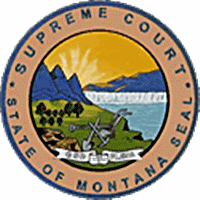 The Montana Supreme Court ruled Commissioner of Political Practices Jonathon Motl’s term has expired, but he must remain in office until a replacement is found. A lawsuit was filed in December 2016 claiming Motl, who was appointed to the position in 2013 by Gov. Steve Bullock, was entitled to a full six-year term ending in 2019.
The Montana Supreme Court ruled Commissioner of Political Practices Jonathon Motl’s term has expired, but he must remain in office until a replacement is found. A lawsuit was filed in December 2016 claiming Motl, who was appointed to the position in 2013 by Gov. Steve Bullock, was entitled to a full six-year term ending in 2019.
The Court stated they did not want to interfere with Bullock’s appointment and later confirmation by the Senate. The order went on to say Motl must remain in office until the Senate confirms a successor.
State Republicans are pleased with the quick ruling, providing an opportunity to confirm a new commissioner during the current 2017 legislative session. Motl’s chief legal counsel, Jamie MacNaughton, and former Billings city commissioner Michael Larson have already submitted applications to be considered as Motl’s replacement.
October 14, 2016 •
U.S. Supreme Court Declines to Hear Colorado Campaign Finance Case
The U.S. Supreme Court recently denied the state of Colorado’s petition for review of a 2016 federal appeals court ruling regarding state campaign finance rules. In Coalition for Secular Government v. Williams, the United States Court of Appeals for the […]
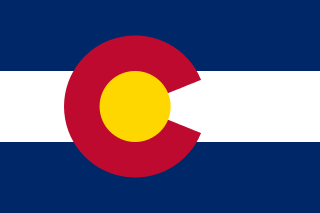 The U.S. Supreme Court recently denied the state of Colorado’s petition for review of a 2016 federal appeals court ruling regarding state campaign finance rules.
The U.S. Supreme Court recently denied the state of Colorado’s petition for review of a 2016 federal appeals court ruling regarding state campaign finance rules.
In Coalition for Secular Government v. Williams, the United States Court of Appeals for the 10th Circuit affirmed a lower court’s ruling declaring the state’s issue committee regulatory framework unconstitutional as applied to the plaintiff, but declined to address the facial validity of the Colorado Constitution’s $200 threshold for issue committee reporting. The strength of the public’s interest in issue committee disclosure depends, in part, on how much money the issue committee has raised or spent.
The appeals court agreed with the 9th Circuit’s characterization of the sliding scale by noting “. . . the value of this financial information to the voters declines drastically as the value of the expenditure or contribution sinks to a negligible level. As the monetary value of an expenditure in support of a ballot issue approaches zero, financial sponsorship fades into support and then into mere sympathy” [Appellate Case: 14-1469; see Canyon Ferry Rd. Baptist Church of E. Helena, Inc. v. Unsworth, 556 F.3d 1021, 1033 (9th Cir. 2009)].
September 20, 2016 •
Constitutional Amendment to Limit Campaign Contributions to Appear on Missouri Ballot
With the Missouri Supreme Court denying an appeal of two lower court rulings, a constitutional amendment reinstating campaign contribution limits will appear on the November ballot. State contribution limits, originally approved by voters in 1994, were repealed by the General […]
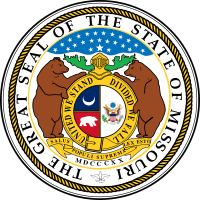 With the Missouri Supreme Court denying an appeal of two lower court rulings, a constitutional amendment reinstating campaign contribution limits will appear on the November ballot. State contribution limits, originally approved by voters in 1994, were repealed by the General Assembly in 2008.
With the Missouri Supreme Court denying an appeal of two lower court rulings, a constitutional amendment reinstating campaign contribution limits will appear on the November ballot. State contribution limits, originally approved by voters in 1994, were repealed by the General Assembly in 2008.
If passed, the 2016 ballot measure would ban direct corporate and labor union contributions and limit individual and committee contributions to statewide candidates to $2,600 per election. Contributions to political parties would be capped at $25,000 per election.
May 9, 2016 •
Monday News Roundup
Lobbying “Lobbyists Struggle with Trump Reality” by Megan Wilson for The Hill “Lobbyist Spending Disclosures Due Soon” by Phil Kabler for Charleston Gazette Connecticut: “State Lawmakers Look to Lobbyists for Money” by Kellianne Jones for WTNH New Mexico: “New Lobbyist […]
 Lobbying
Lobbying
“Lobbyists Struggle with Trump Reality” by Megan Wilson for The Hill
“Lobbyist Spending Disclosures Due Soon” by Phil Kabler for Charleston Gazette
Connecticut: “State Lawmakers Look to Lobbyists for Money” by Kellianne Jones for WTNH
New Mexico: “New Lobbyist Reporting Law Could Have Missed $80,000” by Sandra Fish (New Mexico In Depth) for Las Cruces Sun-News
Campaign Finance
Arizona: “AG: Burns has right to depose APS” by Howard Fischer (Capitol Media Services) for Arizona Daily Star
Florida: “Hialeah Mayor Pays $4,000 Ethics Fine – in Pennies and Nickels” by Enrique Flor (El Nuevo Herald) for Miami Herald
Iowa: “Ron Paul Ex-Aides Guilty in Campaign Payment Scandal” by Grant Rodgers for Des Moines Register
Missouri: “Missouri Voters Could Decide on Campaign Contribution Limits” by David Lieb (Associated Press) for Rock Hill Herald
Ethics
“How the Supreme Court Gets Corruption Totally Wrong” by Zephyr Teachout for Washington Post
“The U.S. Political System Is Flawed but Not Corrupt” by Stephen Medvic for Washington Post
“New Questions Emerge about Bentley’s Vegas Trip, Republican Governors Association’s Influence” by Connor Sheets for AL.com
Elections
“Bernie Sanders’s Online Foot Soldiers Weigh Their Next Campaign” by Jonathan Mahler and Nick Corasaniti for New York Times
The Supreme Court declined to hear a challenge to a Mississippi campaign finance law requiring individuals or groups to report expenditures of $200 or more to support or oppose a ballot measure. Five residents of Mississippi sued the state in […]
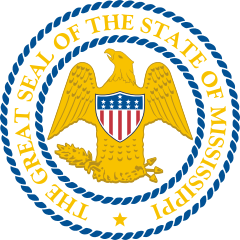 The Supreme Court declined to hear a challenge to a Mississippi campaign finance law requiring individuals or groups to report expenditures of $200 or more to support or oppose a ballot measure.
The Supreme Court declined to hear a challenge to a Mississippi campaign finance law requiring individuals or groups to report expenditures of $200 or more to support or oppose a ballot measure.
Five residents of Mississippi sued the state in 2011, claiming the reporting requirement was too burdensome and infringed on their rights of free speech and association.
A federal judge agreed, stating such requirements overly burdened smaller groups, but was overturned on appeal.
April 4, 2016 •
One Person, One Vote Ruling by U.S. Supreme Court
Today, the U.S. Supreme Court unanimously decided a state or locality may draw its legislative districts based on the total population of all people rather than based on only the population of registered voters. In Evenwel v. Abbott, appellants argued […]
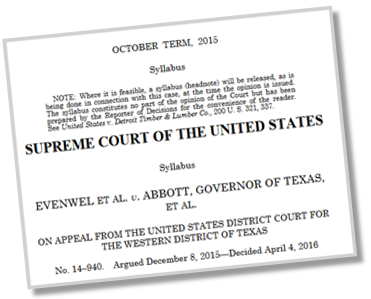 Today, the U.S. Supreme Court unanimously decided a state or locality may draw its legislative districts based on the total population of all people rather than based on only the population of registered voters.
Today, the U.S. Supreme Court unanimously decided a state or locality may draw its legislative districts based on the total population of all people rather than based on only the population of registered voters.
In Evenwel v. Abbott, appellants argued apportionments based on total population for drawing Texas Senate legislative districts diluted their votes in relation to voters in other state Senate districts. They argued such dilution was a violation of the one-person, one-vote principle of the Equal Protection Clause.
While the Court found the apportionment was constitutionally drawn, the decision, written by Justice Ruth Bader Ginsburg for six of the Justices, explicitly stated it does not address whether “states may draw districts to equalize voter-eligible population rather than total population.” Justices Clarence Thomas and Samuel Alito each issued separate concurring opinions. The Court decision is available here.
January 4, 2016 •
California Supreme Court Allows Advisory Measure on November 2016 Ballot
Following a ruling by the California Supreme Court, the California Legislature is permitted to place an advisory measure related to campaign finance on the November 2016 ballot. The advisory measure asks voters their opinions on campaign finance and whether there […]
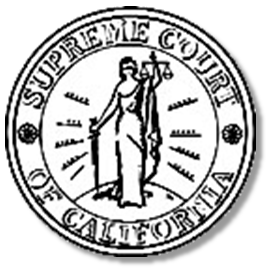 Following a ruling by the California Supreme Court, the California Legislature is permitted to place an advisory measure related to campaign finance on the November 2016 ballot. The advisory measure asks voters their opinions on campaign finance and whether there should be a federal constitutional amendment to overturn Citizens United.
Following a ruling by the California Supreme Court, the California Legislature is permitted to place an advisory measure related to campaign finance on the November 2016 ballot. The advisory measure asks voters their opinions on campaign finance and whether there should be a federal constitutional amendment to overturn Citizens United.
A conservative group challenged the constitutionality of the advisory measure, insisting the Legislature was prohibited from putting such measures before voters. The California Supreme Court ruled the advisory measure is permissible because state legislatures have a role in passing federal constitutional amendments, and therefore it met the required nexus between an advisory measure and a potential legislative action.
Proposition 49, the “Citizens United” measure, will appear on the general election ballot in November 2016.
August 10, 2015 •
Maine Supreme Judicial Court Says LePage’s 65 Vetoes Too Late
On August 6, the Maine Supreme Judicial Court issued an opinion finding 65 bills from the 2015 legislative session were vetoed by Gov. Paul LePage too late to prevent the legislation from taking effect. Last month, the governor had returned […]
 On August 6, the Maine Supreme Judicial Court issued an opinion finding 65 bills from the 2015 legislative session were vetoed by Gov. Paul LePage too late to prevent the legislation from taking effect.
On August 6, the Maine Supreme Judicial Court issued an opinion finding 65 bills from the 2015 legislative session were vetoed by Gov. Paul LePage too late to prevent the legislation from taking effect.
Last month, the governor had returned the 65 bills to the Legislature on July 16, the last day of the session. However, the bills were returned beyond the 10 days, excluding Sundays, a governor has to veto legislation once he or she receives the bills.The court found the bills were beyond the ten days provided for gubernatorial objection and became law effective ninety days after the adjournment sine die of the Legislature, except where enacted as emergency legislation.
The opinion was made at the request of the governor.
State and Federal Communications, Inc. provides research and consulting services for government relations professionals on lobbying laws, procurement lobbying laws, political contribution laws in the United States and Canada. Learn more by visiting stateandfed.com.

